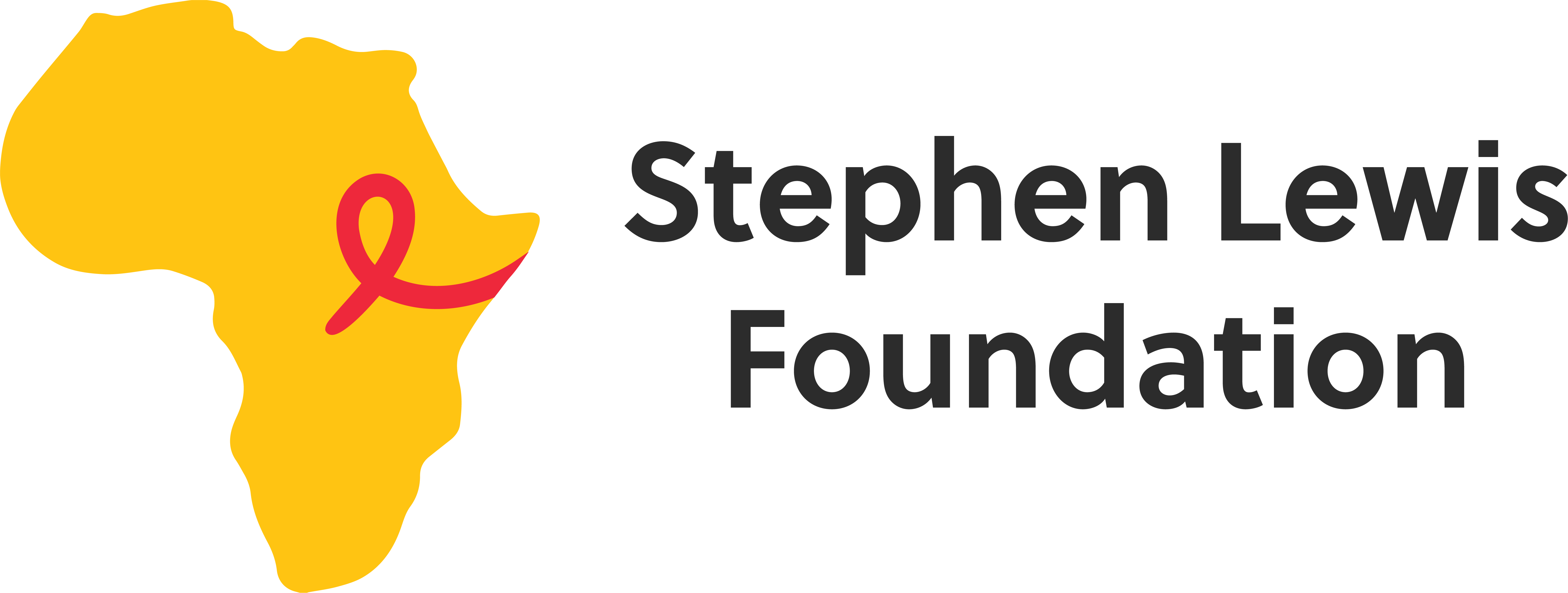Our Strategic Plan 2024-2027
Entering our third decade as a foundation, we continue to pursue our vision of an equitable and just world where all people’s right to health is realized — a future free from AIDS. Through this strategic plan we continue to strengthen our role as a responsible funder of community-led organizations, working with donors to ensure growth in flexible and long-term funding, and ensuring that as a feminist organization grounded in anti-colonialism and anti-racism, we reflect our values in all areas of our work. Led by our guiding star, we will focus on four strategic directions that will drive the SLF’s success in the years ahead.
Guiding Star
Aligned with our history and the values imbued by SLF co-founder Stephen Lewis, along with our deep experience in anti-colonial funding models, we will excel as a feminist partner who respects the autonomy and expertise of community-led organizations (CLOs), working to end AIDS through our granting relationships and as a powerful champion of this partnership model.

Strategic Directions and Key Strategies
-
We are a feminist funder whose partnerships adapt and grow to reflect the evolving needs and experiences of community-led organizations (CLOs) responding to the HIV epidemic in countries across Africa.
-
- Develop a learning and sharing strategy to ensure our content and focus of knowledge sharing activities meet the needs of partners, funders and the SLF.
- Create opportunities for research to consolidate new knowledge on CLOs’ experiences.
- Provide more time and space for CLOs to share their work and its impact directly with key SLF audiences.
- Document learnings from existing grandmothers movements to serve as prototypes for those being developed in other countries and create opportunities for peer-to-peer learning and mentorship.
-
- Shift toward a granting process aligned with the new CRA direction.
- Develop a participatory process for granting available funds above and beyond our core commitments.
-
- Optimize our current technology to reduce the administrative load in grant management.
- Review and refine our new reporting processes to reflect learnings from staff and partner experience.
-
-
As an anti-colonial funder, our fundraising practices are driven by our commitment to raising the most funds our CLO partners can use flexibly in their response to the HIV epidemic.
-
- Develop and execute a strategy to reach a younger socially conscious audience.
- Expand outreach to engage 2SLGBTIQ individuals and allies as aadvocates and financial supporters.
- Identify and deepen relationships with SLF community members who can be champions for our work.
Strategies include:
-
- Identify and cultivate partnerships with new foundations willing to provide flexible and multi-year support.
- Strengthen the giving portfolio for Unions by cultivating solidarity with our CLO partners related to their rights-based work.
- Engage board members in identifying and nurturing relationships with potential donors.
Strategies include:
-
- Organize a trip to the continent for Campaign members to connect with SLF partners.
- Develop a Speakers Bureau to support recruitment and engagement efforts.
- Continue to support the Diversity, Inclusion, Recruitment and Retention Committee’s work to organize and mobilize across the Campaign.
- Support Canadian and African grandmothers’ advocacy efforts coming out of the International Grandmothers Gathering.
Strategies include:
-
- Develop robust reporting mechanisms to provide actionable insights for the fundraising team and to support data-driven decisions.
Strategies include:
-
- Build capacity to identify and share partner challenges, achievements and learnings to support stewardship and engagement.
- Ensure an equitable, transparent process for identifying partners to participate in grant proposals.
Strategies include:
-
-
Through bold and forthright communications and advocacy, we centre the work of CLOs as we push for an increase in anti-colonial support for CLOs, and advance racial and gender equity and LGBTIQ rights to end AIDS.
-
- Identify advocacy actions that can be taken by diverse constituencies of SLF supporters.
- Create tools for SLF advocates to help educate and inspire a broader network.
- Build relationships with digital influencers to expand our reach.
Strategies include:
-
- Share partner learnings, experiences and impact more broadly and identify opportunities for partners to tell their own stories.
- Leverage current issues to raise the profile of the SLF, the HIV epidemic and the work of our partners in traditional and digital media.
- Articulate the feminist principles of our work and participate more prominently in feminist spaces.
- Engage African women in our anti-colonial funding efforts.
Strategies include:
-
- Refresh key messages focused on the social justice, anti-racist, feminist and human rights work of the SLF and our community-led partners in the context of HIV.
- Empower staff and board members with key messages.
Strategies include:
-
- Call out problematic policies and procedures by large funders and advocate for change.
- Collaborate with allies to educate and advocate within international development and philanthropic sectors.
- Create opportunities for SLF partners to showcase their work and highlight the need for increased anti-colonial support for CLOs.
- Document and share partner reflections on the impact of flexible funding.
Strategies include:
-
- Support SLF partners to collaborate and share their knowledge and expertise with decision makers and influencers.
- Champion key HIV issues and concerns in networks, conferences and panels.
- Advocate for the Government of Canada to increase its commitment to HIV responses.
- Explore the intersections of HIV with other issues through our communications and advocacy.
Strategies include:
-
-
We co-create a thoughtful feminist culture that nurtures success in our collective commitment to CLOs.
-
- Provide regular opportunities for all staff to learn about our partners and their work.
- Provide organization-wide training and retreats to learn about and reflect on issues aligned with our values and work.
Strategies include:
-
- Regularly review organizational processes to reduce gaps and bottlenecks.
- Continue to build effective feedback and collaboration skills among staff.
Strategies include:
-
- Review the current finance manual, policies and procedures to ensure continued strong controls across the SLF.
- Review fundraising policy to ensure continued alignment with our fundraising practices and values.
Strategies include:
-
- Develop policies for using artificial intelligence.
- Implement and regularly evaluate a strong cybersecurity strategy including training for staff.
Strategies include:
-
- Be deliberate in creating opportunities for interpersonal connection given that most staff work remotely.
- Enhance the performance planning and review process to best support staff in their work, professional growth and a culture of feedback.
Strategies include:
-
- Develop a procurement policy that supports Indigenous, women, and Black-led organizations and businesses.
- Review the SLF’s carbon footprint and develop a strategy to reduce or offset it.
- Further define steps to support truth and reconciliation.
Strategies include:
-
